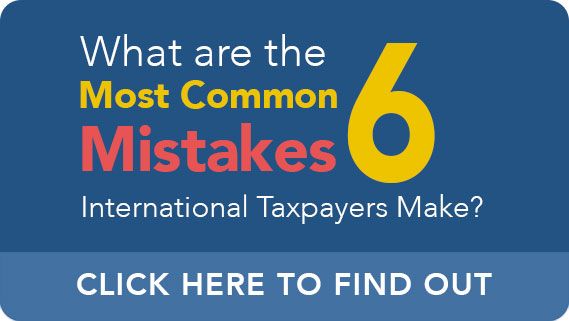US Taxes for Expats in China
30 to 40 years ago, few Americans would have considered China to be a desirable country to relocate to. However political and economic reforms have transformed the country into an emerging giant. Today, China routinely ranks as one of the world’s fastest growing economies and regularly boasts growth rates that far exceed what is possible in the developed world. This explosion of manufacturing and economic activity in China has given rise to numerous business opportunities for Americans.
Unfortunately the allure of a large, untapped market can obscure some of the more important, but less glamourous, considerations an expat must make – including tax considerations. The experienced accountants of US Tax Help are dedicated to helping US expats in China understand their tax obligations. 
What tax obligations do I have as a US Citizen or green card holder in China?
To start, the tax obligations of a US green card holders are extremely expansive and based on one’s citizenship rather that physical presence. With Etriea, the United States is the only nation in the world to tax its citizens in such a fashion. What this means for a US citizen or a US green card holder is that they are subject to taxation and reporting requirements on their worldwide income. That is, if you are a US citizen or green card holder it is irrelevant where you earn your money or where you are when you earn it – you always have an obligation to report your income, foreign accounts and other assets and pay taxes on them. The failure to make required disclosures, including FBAR, can lead to significant penalties and additional tax compliance issues.
Aside from US tax obligations, a US expat in China may also have foreign tax obligations. This is typically true if you are considered to be domiciled in China. Expatriates who have lived in China for less than 5 years are usually considered to be domiciled in China. If you have lived in China for less than 5 years you are considered to be non-domicile. Those who are considered non-domiciled in China may be exempt from paying a tax. Thus, depending on circumstances, it can be beneficial to maintain a non-domiciled status.
What are the penalties for failing to comply with FBAR filing obligations?
Aside from the obligation to report all worldwide income to the IRS on your tax return, many expats in China and other foreign countries also have an obligation to file Report of foreign Bank and Financial Accounts (FBAR, Form, TD F 90-22.1). The FBAR is due every June 30th for the previous tax year. A US expat is required to file an FBAR if he or she holds foreign financial accounts that exceed $10,000 at any point during the year. It is essential to note that your accounts are considered in the aggregate. So, if you have 3 accounts – each with the equivalent of $4,000 – you almost certainly have an FBAR reporting obligation because the aggregate amount in the accounts is $12,000 which exceeds the $10,000 FBAR filing threshold.
 The failure to timely file an FBAR can be punished with a fine of $10,000 for each and every violation that is determined to be non-willful. However, if your failure to file an FBAR is found to be willful, penalties increase significantly. For a willful violation, the penalty that can be assessed is the greater of 50 percent of the amount in the account or $100,000 — for each violation. Because the IRS considers each year where you did not file to be a separate violation, fines and penalties for FBAR non-compliance can quickly accumulate beyond an individual’s ability to pay.
The failure to timely file an FBAR can be punished with a fine of $10,000 for each and every violation that is determined to be non-willful. However, if your failure to file an FBAR is found to be willful, penalties increase significantly. For a willful violation, the penalty that can be assessed is the greater of 50 percent of the amount in the account or $100,000 — for each violation. Because the IRS considers each year where you did not file to be a separate violation, fines and penalties for FBAR non-compliance can quickly accumulate beyond an individual’s ability to pay.
Put our tax experience for expats to work for you in China
At US Tax Help we can devise strategies that will minimize the fines, penalties or other tax liabilities you may face. Depending on your situation a voluntary disclosure, a quiet disclosure, or another strategy may be your best option. We can answer your questions and address numerous tax concerns including income reporting requirements, FATCA, FBAR and many others. To schedule your US expat in China tax consultation, call (541) 923-0903, or contact CPA Ted Kleinman of US Tax Help online.
